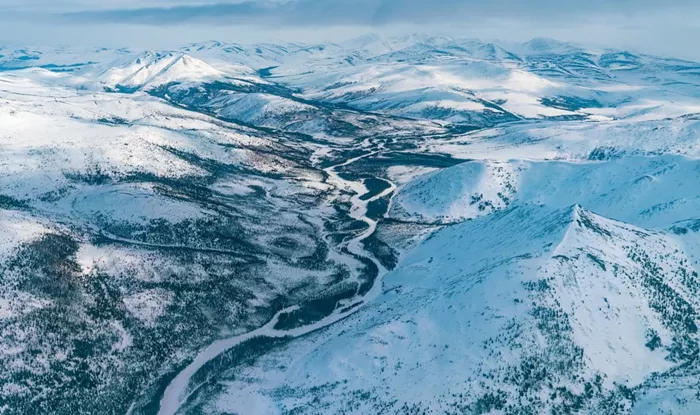Just hours after former President Donald Trump was declared the winner of the 2024 election, the Biden administration took a significant step to protect Alaska’s Arctic National Wildlife Refuge (ANWR) by moving to limit oil drilling in the area. The administration’s decision marks a bold move in the ongoing battle over environmental protections in one of the most pristine and ecologically sensitive regions in the world.
For decades, oil drilling in the Arctic National Wildlife Refuge, a vast stretch of wilderness in northeastern Alaska, was off-limits due to its sensitive ecosystem and importance as a habitat for numerous endangered species. However, a law passed under the first Trump administration mandated the federal government to hold two lease sales for fossil fuel drilling in the region. The first sale, held in 2021, was ultimately canceled by the Interior Department after the oil industry showed little interest in drilling in the region.
The law required a second lease sale to be held before the end of 2024, a deadline that the Biden administration is now moving to address. The Interior Department signaled Wednesday that it plans to move forward with a smaller-scale 400,000-acre auction, the minimum acreage that it could legally offer. This decision reflects an effort to comply with the requirements of the law while also limiting the environmental impact of oil drilling in the area.
The move is part of a broader strategy by President Joe Biden’s administration to protect his legacy on climate change and environmental conservation. Biden has taken aggressive steps to address climate change throughout his presidency, but the Arctic National Wildlife Refuge has remained a point of contention. While the Biden administration approved the Willow oil drilling project in Alaska’s North Slope — a significant development in terms of fossil fuel exploration — the administration has simultaneously worked to protect large portions of Alaska’s wilderness from oil and gas exploration.
The upcoming lease sale and Biden’s larger push for environmental protection underscore the administration’s efforts to walk a fine line between addressing the nation’s energy needs and maintaining its environmental commitments. Despite the ongoing legal and political battles surrounding energy policies, the administration’s goal is clear: to secure long-term protections for some of the most important natural habitats in the U.S.
The Biden administration’s decision to limit oil drilling in the Arctic Refuge generated a range of reactions. Environmental advocates, such as Kristen Miller, executive director of the Alaska Wilderness League, praised the move as a significant step in safeguarding the Arctic Refuge. “Today’s action by the Biden administration better protects the Arctic Refuge, and for that, we are grateful,” Miller said. “The fight to save the Arctic Refuge is back, and we are ready for the next four years.”
However, the decision has sparked criticism from some Alaska Native groups and local leaders who argue that the restrictions will harm the region’s economy. The economy of Alaska’s North Slope, in particular, is heavily dependent on revenue from oil drilling, and many residents feel that the federal government is not adequately considering their needs.
Josiah Patkotak, the mayor of North Slope Borough, voiced concerns that the Biden administration’s stance ignores the needs of local communities. “It seems that once again the people of the North Slope are being told that our voices and lived experience are insufficient,” Patkotak said in a statement. “Federal laws passed by Congress should mean something, but this action seems to say otherwise.”
This move by the Biden administration highlights the broader debate between environmental conservation and economic development, particularly in areas like Alaska where oil drilling plays a central role in local economies. With global oil prices fluctuating and energy independence a critical issue for many Americans, the government faces mounting pressure to find a balance between environmental stewardship and economic growth.
While some argue that the move will benefit the environment in the long run, others believe it may hinder efforts to boost domestic oil production and economic development. This complex issue will likely continue to evolve as the Biden administration works to fulfill its environmental goals while responding to the concerns of local communities and industry stakeholders.
Read more:

